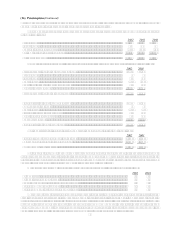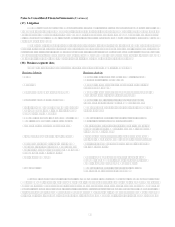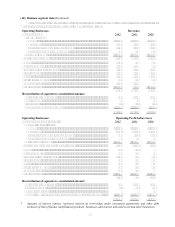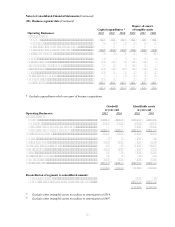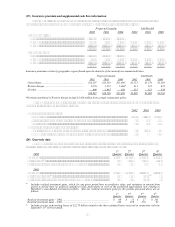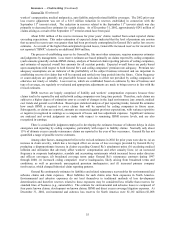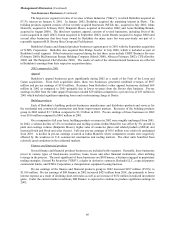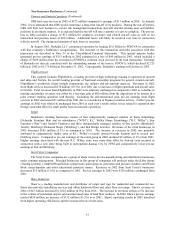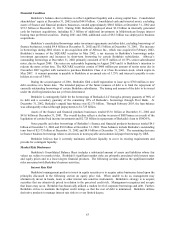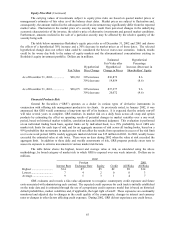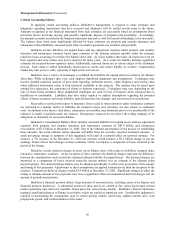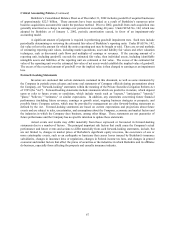Berkshire Hathaway 2002 Annual Report Download - page 58
Download and view the complete annual report
Please find page 58 of the 2002 Berkshire Hathaway annual report below. You can navigate through the pages in the report by either clicking on the pages listed below, or by using the keyword search tool below to find specific information within the annual report.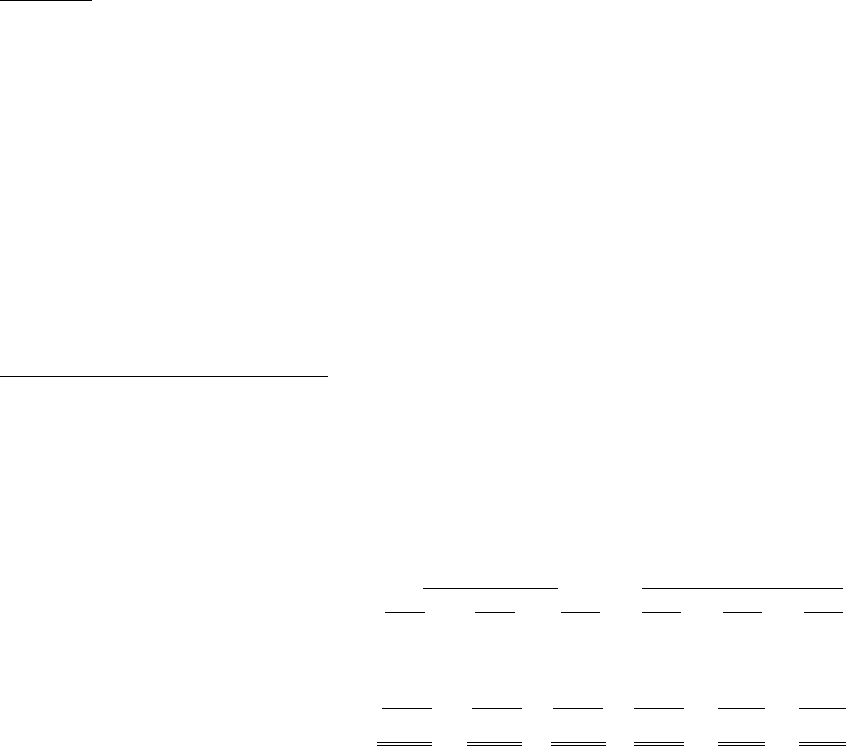
57
Insurance — Underwriting (Continued)
General Re (Continued)
At December 31, 2002, the international property/casualty operations had gross loss reserves accrued of
$7.1 billion, ($6.4 billion net of reinsurance). Loss reserves for these operations are established based on
methodologies similar to those used in the North American property/casualty operations; however, cedant reports
for continental Europe and certain other international markets are generally required less frequent or are due later
than those provided by North American cedants.
Global life/health
General Re’ s global life/health affiliates reinsure such risks worldwide. Premiums earned in 2002 for the
global life/health operations declined $102 million (5.1%) from 2001. In 2001, premiums declined $273 million
from 2000, primarily due to the elimination of the one quarter reporting lag in the fourth quarter of 2000. Global
life/health generated underwriting losses of $55 million in 2002, compared with $82 million in 2001, and $80
million in 2000. Underwriting results for 2001 include $19 million of net losses related to the September 11th
terrorist attack. Otherwise, the poor underwriting results in 2002 and 2001 reflected losses generated from
discontinued lines of the health business and in 2000 were from the international health business.
Berkshire Hathaway Reinsurance Group
The Berkshire Hathaway Reinsurance Group (“BHRG”) underwrites excess-of-loss and quota-share
reinsurance coverages for insurers and reinsurers around the world. BHRG is believed to be one of the leaders in
providing catastrophe excess-of-loss reinsurance. Since July 2001, BHRG has also written a number of policies or
contracts primarily for large or otherwise unusual discrete commercial property risks on a direct and facultative
reinsurance basis. This business is referred to as individual risk. BHRG’ s pre-tax underwriting results are
summarized in the table below.
— (dollars in millions) —
Premiums earned Pre-tax underwriting gain
2002 2001 2000 2002 2001 2000
Catastrophe and individual risk................................. $1,283 $ 553 $ 321 $1,006 $ (150) $ 196
Retroactive reinsurance............................................. 407 1,993 3,944 (446) (371) (191)
Quota share ............................................................... 1,289 220 22 (86) (57) (3)
Other ......................................................................... 321 225 425 60 (69) (164)
Total .......................................................................... $3,300 $2,991 $4,712 $ 534 $(647) $(162)
During the second half of 2001, opportunities for BHRG to write catastrophe and individual risk business
increased significantly, particularly post-September 11. Contracts written may provide exceptionally large limits of
indemnification, often several hundred million dollars and occasionally in excess of $1 billion, and may cover
catastrophe risks (such as hurricanes, earthquakes or other natural disasters) or other property risks (such as aviation
and aerospace, commercial multi-peril or terrorism). Industry capacity devoted to these coverages will likely
increase in the future which will reduce the opportunities for BHRG to underwrite risks at acceptable prices.
Consequently, the volume of such business may decline, perhaps significantly.
The catastrophe and individual risk business produced substantial underwriting gains in 2002 and 2000,
due to the lack of catastrophic or otherwise large loss events. The net underwriting loss in 2001 included about
$410 million from the September 11th terrorist attack. Losses related to the September 11th terrorist attack were
reduced by about $85 million in 2002, as payments to settle claims under certain policies were below original
estimates. Approximately $300 million of reserves related to the terrorist attack remained as of December 31, 2002.
Although a very large underwriting gain was achieved in 2002 as a result of unusually low catastrophe occurrences,
a single loss event could have easily eliminated those gains. Berkshire’ s management expects a catastrophic event
will one day occur that will produce an extraordinary level of losses under policies written by BHRG.
BHRG cedes virtually none of the risk associated with this business to other reinsurers due to the perceived
uncertainty of collecting recoverable losses ceded to financially weaker companies. Underwriting results of this
business will remain subject to extreme volatility. Nevertheless, Berkshire’ s management remains willing to accept
such volatility provided there is a reasonable prospect of long-term profitability.


